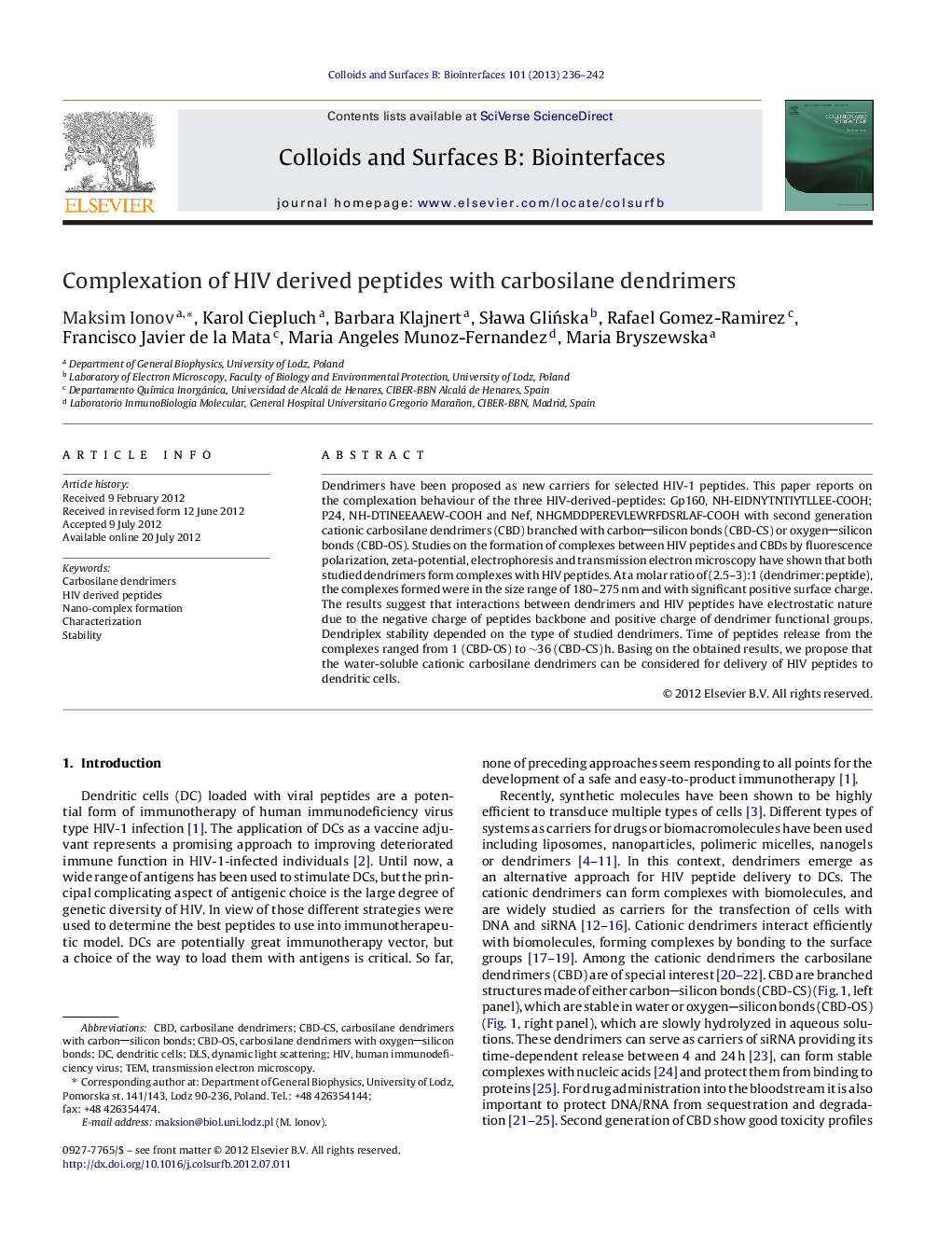| Article ID | Journal | Published Year | Pages | File Type |
|---|---|---|---|---|
| 600452 | Colloids and Surfaces B: Biointerfaces | 2013 | 7 Pages |
Dendrimers have been proposed as new carriers for selected HIV-1 peptides. This paper reports on the complexation behaviour of the three HIV-derived-peptides: Gp160, NH-EIDNYTNTIYTLLEE-COOH; P24, NH-DTINEEAAEW-COOH and Nef, NHGMDDPEREVLEWRFDSRLAF-COOH with second generation cationic carbosilane dendrimers (CBD) branched with carbonsilicon bonds (CBD-CS) or oxygensilicon bonds (CBD-OS). Studies on the formation of complexes between HIV peptides and CBDs by fluorescence polarization, zeta-potential, electrophoresis and transmission electron microscopy have shown that both studied dendrimers form complexes with HIV peptides. At a molar ratio of (2.5–3):1 (dendrimer:peptide), the complexes formed were in the size range of 180–275 nm and with significant positive surface charge. The results suggest that interactions between dendrimers and HIV peptides have electrostatic nature due to the negative charge of peptides backbone and positive charge of dendrimer functional groups. Dendriplex stability depended on the type of studied dendrimers. Time of peptides release from the complexes ranged from 1 (CBD-OS) to ∼36 (CBD-CS) h. Basing on the obtained results, we propose that the water-soluble cationic carbosilane dendrimers can be considered for delivery of HIV peptides to dendritic cells.
Graphical abstractFigure optionsDownload full-size imageDownload as PowerPoint slideHighlights► Carbosilane dendrimers as carriers for HIV-derived-peptides were evaluated. ► HIV-peptide/dendrimer complexes were formed and studied. ► Both studied dendrimers can effectively form the complexes with selected HIV derived peptides. ► Carbosilane dendrimers can be considered for delivery of HIV-peptides to dendritic cells.
